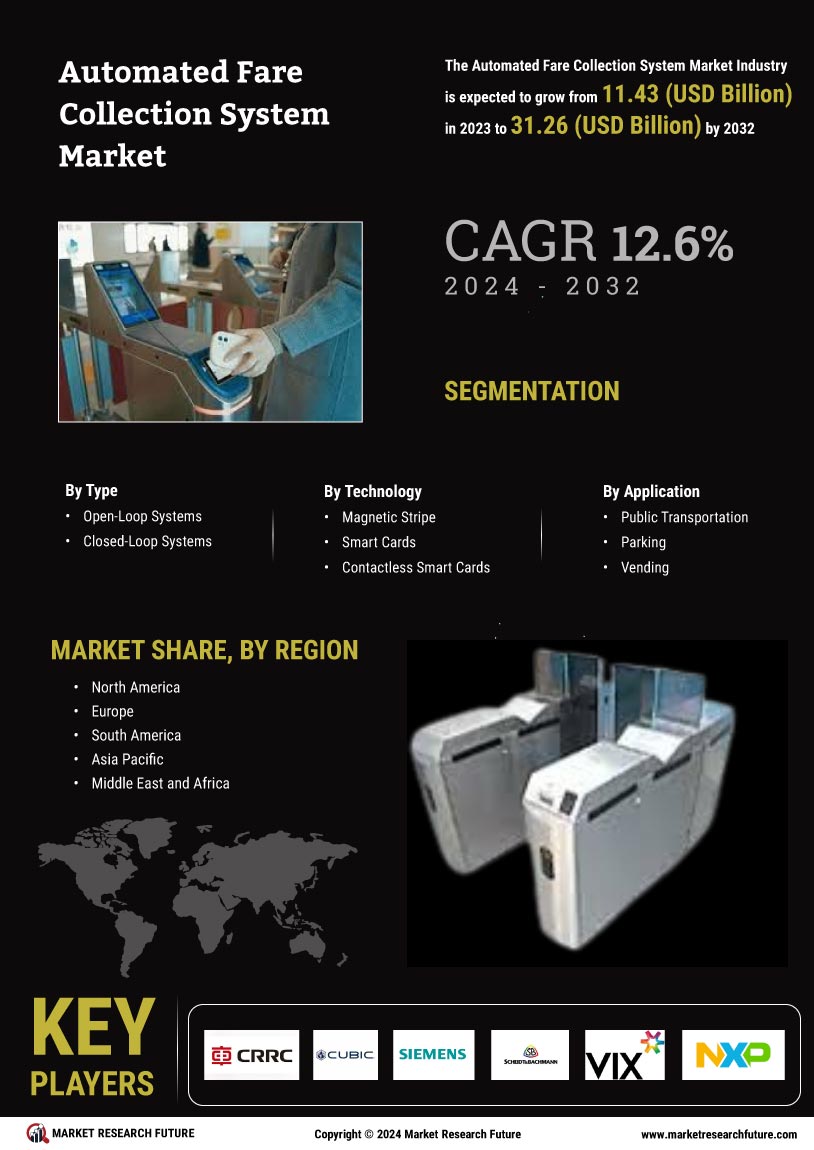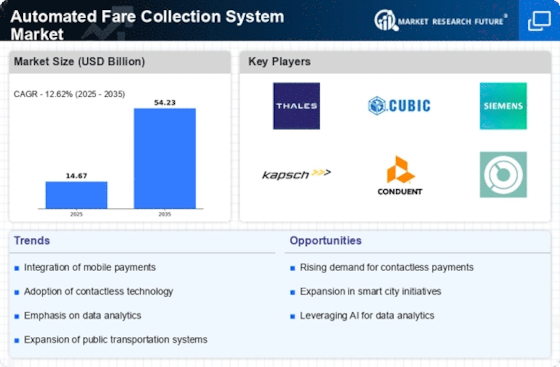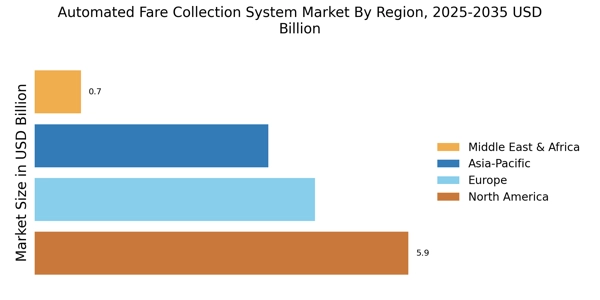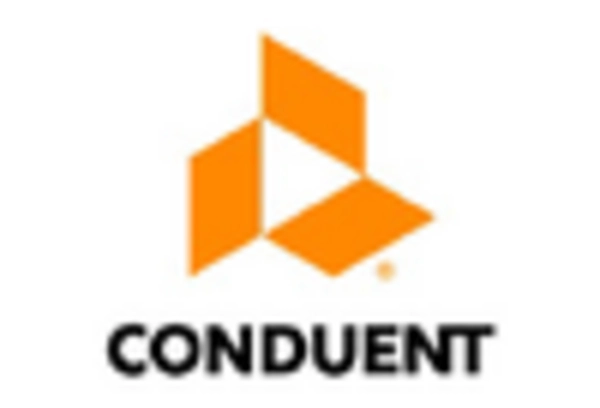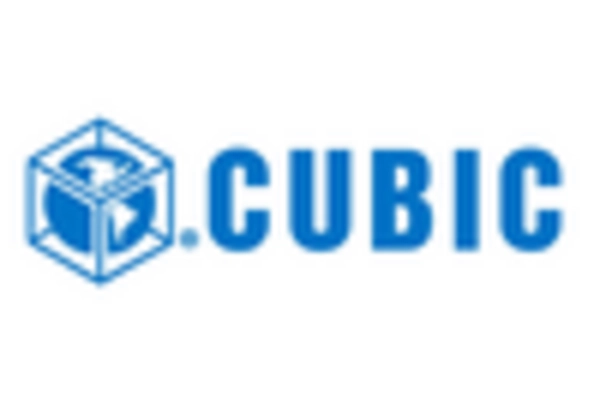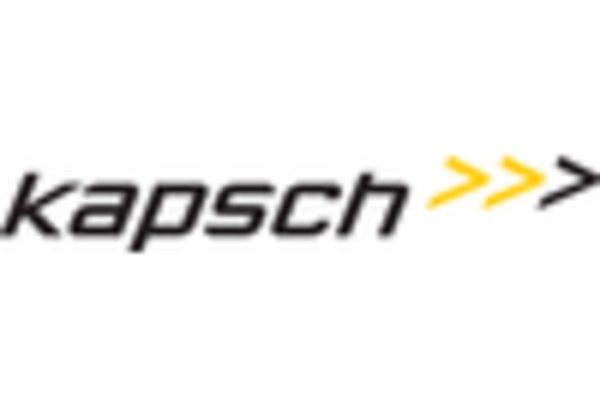Focus on Data Security and Privacy
Data security and privacy concerns are becoming increasingly prominent in the Automated Fare Collection System Market. With the rise of digital transactions, the potential for data breaches and unauthorized access to personal information has heightened. Consequently, transport operators are prioritizing the implementation of robust security measures to protect user data. This focus on security is likely to drive the adoption of advanced automated fare collection systems that incorporate encryption, tokenization, and other security protocols. Furthermore, regulatory frameworks are evolving to address these concerns, compelling operators to comply with stringent data protection laws. As a result, the Automated Fare Collection System Market is expected to grow as stakeholders invest in secure technologies that foster consumer trust.
Government Initiatives and Funding
Government initiatives play a crucial role in propelling the Automated Fare Collection System Market. Various governments are increasingly investing in modernizing public transport infrastructure, recognizing the importance of efficient fare collection systems. For instance, funding programs aimed at enhancing urban mobility have been established, which often include provisions for automated fare collection technologies. This financial support is expected to drive the adoption of advanced systems, as municipalities seek to improve service delivery and reduce fare evasion. The Automated Fare Collection System Market stands to gain from these initiatives, as they not only provide the necessary capital but also encourage collaboration between public and private sectors to innovate and implement cutting-edge solutions.
Rising Consumer Expectations for Convenience
Consumer expectations are evolving, with a growing demand for convenience and seamless travel experiences. This trend is a significant driver for the Automated Fare Collection System Market. Passengers increasingly prefer systems that minimize wait times and simplify fare payment processes. The implementation of user-friendly interfaces and mobile applications is becoming essential for transport operators aiming to meet these expectations. Additionally, the rise of multi-modal transport options necessitates integrated fare collection systems that allow users to switch between different modes of transport effortlessly. As a result, the Automated Fare Collection System Market is likely to expand as operators invest in technologies that enhance customer satisfaction and streamline the overall travel experience.
Technological Advancements in Payment Systems
Technological advancements are significantly influencing the Automated Fare Collection System Market. The proliferation of mobile payment solutions and digital wallets has transformed how consumers interact with fare collection systems. As of 2025, it is estimated that mobile payments will account for over 50% of all transactions in the transport sector. This shift necessitates the integration of sophisticated automated fare collection systems that can accommodate various payment methods, including contactless cards and mobile applications. Furthermore, the rise of blockchain technology presents opportunities for enhanced security and transparency in fare transactions. Thus, the Automated Fare Collection System Market is poised for growth as it adapts to these technological innovations.
Increasing Urbanization and Public Transport Demand
The rise in urbanization is a pivotal driver for the Automated Fare Collection System Market. As cities expand, the demand for efficient public transport systems intensifies. This trend is evidenced by the projected increase in urban population, which is expected to reach 68% by 2050. Consequently, public transport authorities are compelled to adopt automated fare collection systems to streamline operations and enhance user experience. The integration of these systems not only facilitates faster transactions but also reduces operational costs. Moreover, the Automated Fare Collection System Market is likely to benefit from the growing need for real-time data analytics, enabling transport operators to optimize routes and schedules based on passenger demand.
